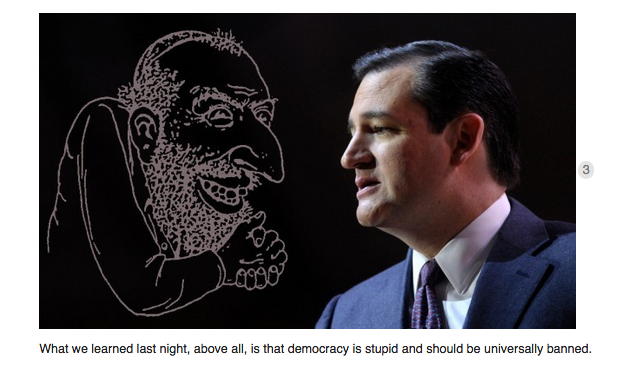Opinion: A Ghost Town For Clubs, A Boom Town For Investors?
Berlin's leaders want us to believe that the closure of its clubs is an inevitable consequence of economic success. Is it just me, or is there something wrong with this logic?
via GIPHY
via GIPHY
When the specials wrote Ghost Town in 1981, England was in the grips of an unprecedented recession. That economic decline resulted in a situation where, "all the clubs are being closed down" - so run the lyrics of the song.
In Berlin in the present day, clubs are being closed down, too - only now, we are expected to believe that the scene is dying for the opposite reason: the city is a too much of a success. Apparently, the wave of new speculators coming here to invest in our property is just so overwhelming that the city cannot afford to set aside land for the businesses that are already here.
To quote Will Ferrell in Zoolander, "I feel like I'm taking crazy pills!" Since when is being too much of an economic success an excuse for closing down local businesses? If investors are coming into Berlin that thick and fast, it should be a simple enough matter to screen them and find some who want to support the city's legendary club scene - like what happened to Kater Blau after it was turfed out of its old premises at Kater Holzig and Bar 25.
Alternatively, the Senate could always levy a sort of a "club tax" on property developers who insist on dropping their family friendly, middle class loft development right on the doorstep of seedy 24/7 clubs like R19 (RIP). It could then use that money to pay the relocation expenses of the displaced venues.
Where there is a will there is a way... and this, dear reader, brings us to the crux of the problem: Berlin's puritanical Senate does not have any will to protect its wild clubs, no matter how wildly profitable they may be.
And 'wildly profitable' is the right phrase to use. If bringing in cash was the only goal of the Senate, it would be falling all over itself to protect the local club scene. The city's Club Commission, er, 'commissioned' a survey in 2018 and found that, in that year alone, the club scene brought in €1.5 billion in spending via party tourists.
The underground clubs that are now being displaced - such as Rosis (RIP), Rummelsburger Bucht and About Blank, may make up a slightly smaller share of that revenue, but they are undeniably an important source of new sounds, styles and ethical practices for the whole of Berlin's radical-but-sexy party scene.
Berlin's smaller clubs provide an open-door DJ policy that acts as a revolving door between illegal raves / grassroots parties, and more "official" outposts such as the aforementioned Kater Blau. They also act as a means of funnelling clubbing funds into worthy causes like Lampedusa and Sea Watch, via benefit parties and campaigns. All of these things form parts of an interconnected nightlife ecosystem, a community bound together by culture as much as it is by commerce.
Alternatively, the Senate could always levy a sort of a "club tax" on property developers who insist on dropping their family friendly, middle class loft development right on the doorstep of seedy 24/7 clubs like R19 (RIP). It could then use that money to pay the relocation expenses of the displaced venues.
Where there is a will there is a way... and this, dear reader, brings us to the crux of the problem: Berlin's puritanical Senate does not have any will to protect its wild clubs, no matter how wildly profitable they may be.
And 'wildly profitable' is the right phrase to use. If bringing in cash was the only goal of the Senate, it would be falling all over itself to protect the local club scene. The city's Club Commission, er, 'commissioned' a survey in 2018 and found that, in that year alone, the club scene brought in €1.5 billion in spending via party tourists.
The underground clubs that are now being displaced - such as Rosis (RIP), Rummelsburger Bucht and About Blank, may make up a slightly smaller share of that revenue, but they are undeniably an important source of new sounds, styles and ethical practices for the whole of Berlin's radical-but-sexy party scene.
Berlin's smaller clubs provide an open-door DJ policy that acts as a revolving door between illegal raves / grassroots parties, and more "official" outposts such as the aforementioned Kater Blau. They also act as a means of funnelling clubbing funds into worthy causes like Lampedusa and Sea Watch, via benefit parties and campaigns. All of these things form parts of an interconnected nightlife ecosystem, a community bound together by culture as much as it is by commerce.
So to me, this "Sorry, we are too successful to help you" excuse is just that - an excuse - and a pretty poor one, at that. The Senate seems to think that if it ignores the city's club scenes, we will simply go away. Come to Oranienplatz at 3:00 p.m. today to make some noise and show them how wrong they are...



Comments
Post a Comment